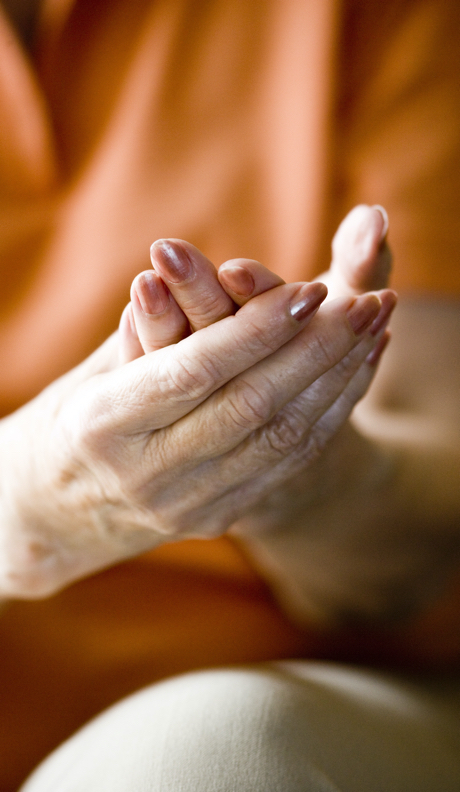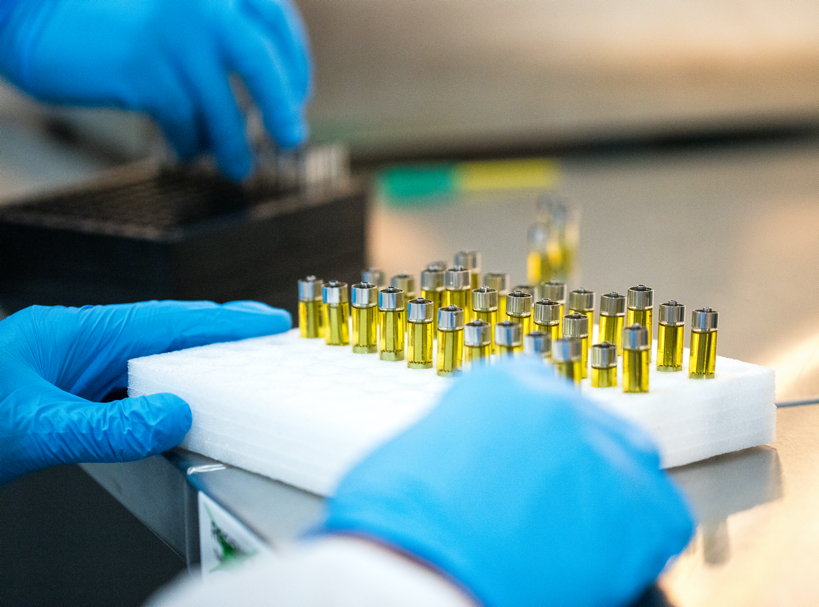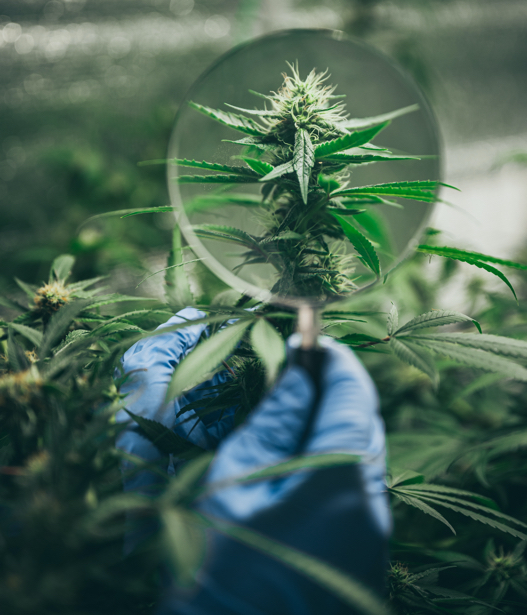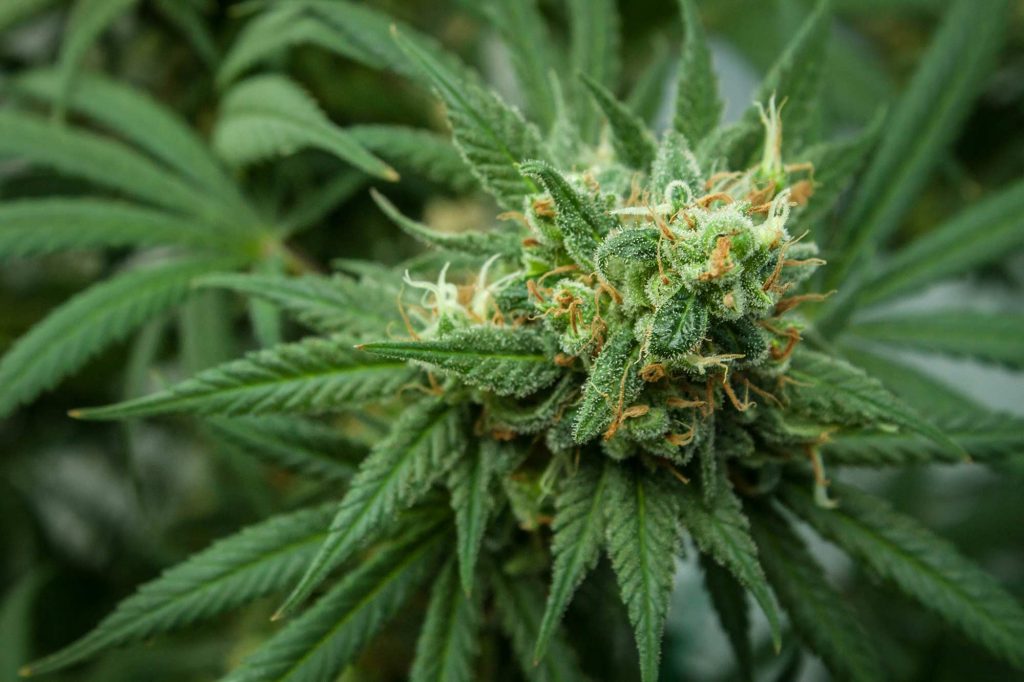Blog
Multiple Sclerosis & Cannabis

Multiple Sclerosis (MS) is a chronic illness in which the immune system attacks the protective layer around nerve fibers within the central nervous system.
The scar tissue, lesions and inflammation caused by this attack make it difficult for the brain to send signals to the rest of the body.
As a result, common symptoms include muscle spasms and stiffness, pain, tingling and numbness around the body, impaired coordination and balance which affect the ability to walk, an overactive bladder, impaired vision, impaired ability to think and learn as well as fatigue.
There are broadly two types of MS:
- Around 10% of MS patients suffer from Primary Progressive MS in which these symptoms gradually build and worsen over a number of years.
- Around 80% of MS patients suffer from Relapsing Remitting MS in which patients will have periods of time, or episodes, where they experience heightened symptoms, followed by periods of remission in which the symptoms are less pronounced or even disappear.
The MS Society estimate that there are around 5200 new diagnoses made each year in the UK on top of 110,000 people who already suffer from the condition. MS is almost 3x more likely in women compared to men and most commonly diagnosed when people are in their 20s or 30s.
There is no cure for MS but there is strong evidence suggesting that cannabis can play an important role in treating some of MS’s most common symptoms. In certain cases, the NHS in the UK and the National Multiple Sclerosis Society in the US support the use of cannabis based medicine to treat MS related symptoms.
This article will give a summary of some of the key research findings around cannabis as a treatment for multiple sclerosis.

What we’ll cover in this article
Potential Benefits
There is a strong body of evidence demonstrating that medicinal cannabis could help treat:
- Spasticity, muscle spasms and muscle tightness
- Pain related to MS
- Bladder problems related to MS
- Sleep and quality of life

Research
Cannabis for muscle control in MS
In 2019 NICE recommended the licensed drug Sativex for use through the NHS to treat moderate to severe spasticity caused by MS when other treatments haven’t helped.
(You can find out more about how to get a medicinal cannabis prescription here.)
NICE’s recommendation followed a series of positive study results.
In 2010, a review of three studies including 666 patients showed that cannabinoid-derived Sativex (nabiximol) reduced subjective spasticity when administered as a mouth spray.
In a 2012 study, 279 MS patients in the UK proved that a mainly THC oral extract from the Cannabis sativa L plant could provide almost twice as much relief from muscle stiffness as the placebo group over a 12 week treatment period.
In a 2018 overview of 11 reviews, 5 of the 11 concluded there was significant evidence to suggest that cannabis was an effective treatment for muscle spasticity.
Cannabis for pain relief in MS
A 2005 ‘gold standard’ controlled trial with 66 MS patients showed that cannabis-based medicine was twice as effective than placebo at treating central neuropathic pain related to MS.
There is still work to be done to identify the optimal dose, delivery mechanism and ratio of THC:CBD to treat neuropathic pain in MS patients.
Sativex has been trialed to treat neuropathic pain in MS patients with promising results but is not currently licensed to be prescribed through the NHS for anything other than spasticity.
Although the NHS are restricted from prescribing cannabis for pain related to MS, private UK based medicinal cannabis clinics have more experience and scope for treating these symptoms with cannabis based medicines. Find out more here.
Cannabis for bladder issues in MS
A 2010, 10 week randomized controlled trial of Sativex with 135 MS patients showed some improvement in symptoms associated with bladder dysfunction.
A further 2017 study, that screened 8,469 articles including two randomized controlled trials and one open‐label study, showed more promising results from the 426 MS patients who were included.
The study looked at how THC:CBD oromucosal spray could help with overactive bladder symptoms, maximal cystometric capacity, bladder compliance, maximum detrusor pressure, leakage volume and post-void residual volume.
Sleep and quality of life
A 2005 ‘gold standard’ controlled trial showed that cannabis-based medicine was three times more effective for sleep than placebo according to 66 MS patients.
Cannabis could provide a safer alternative where MS patients are using prescription opioids, benzodiazepines and antidepressants to treat spasticity, pain, anxiety or panic disorders caused by MS.
There are some common side effects reported by patients that are caused by opioids including dizziness, nausea, constipation, respiratory depression, sedation, physical dependence and tolerance.
Antidepressants can have a range of distressing side effects for some patients including anxiety, dizziness and blurred vision.
Some benzodiazepines such as flurazepam and diazepam can also cause daytime drowsiness and a ‘hangover’ effect.
A 2017 epidemiological study conducted with 1513 medical cannabis patients in New England showed that over 77% of frequent opioid users, 72% of antianxiety medication users and 65% of sleep medication users decreased their intake of these medications significantly once they started using cannabis-based medicines.
How people use CBPMs
It’s always important to talk to your GP and specialist before adding cannabis based medicines to your treatment regime.
As mentioned above, Sativex is a licensed medicine that has been approved by NICE as an NHS treatment for spasticity yet very few NHS prescriptions have been witten.
If you find your NHS doctor unresponsive to your questions concerning cannabis as a treatment for MS symptoms it’s worth contacting a private medicinal cannabis clinic. They work with specialist doctors who will have treated other MS patients with cannabis and are up to date with the latest high quality research.
(You can find out more about talking to private medicinal cannabis clinics here.)
There are hundreds of cannabis strains each with their own unique medicinal profile. Matching the correct strain to your particular symptoms and personal biochemistry is best done with a medical professional who understands this area of medicine and can help you find the optimal treatment for you.

Risks
A 2018 review of cannabis as a treatment for MS patients found that it has a very good safety profile, was generally well-tolerated and rarely had serious adverse effects.
Some key risks to be aware of are:
Interactions with other medications
It’s important to talk to your doctor about possible interactions that cannabis based medicines may have with other prescription medications you are taking.
60% of marketed pharmaceuticals are metabolized by liver enzymes and at high doses CBD can deactivate these enzymes, which could in turn impact their ability to be broken down effectively.
Accurate labeling of products
A study conducted in 2017 showed that a wide range of CBD products bought online contained 26% less CBD than advertised on the bottle negating their therapeutic benefit.
It’s important to buy independently lab-tested, over-the-counter CBD products from reputable brands. Buying products through specialist clinics is also a safe way to ensure you are sourcing high-quality medicine.
Disclaimer: This article is intended for informational purposes only and does not constitute medical advice. It is not the purpose of this article to provide a definitive scientific review of the evidence for cannabis use in different medical conditions. Always consult a doctor or other qualified physician before seeking treatment for a medical condition.
Contact Us
Get in touch
We love hearing from people who believe in the power of cannabis. If you are a patient, a potential supplier or an investor please say hello!






